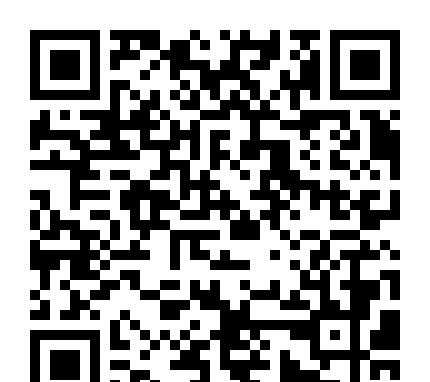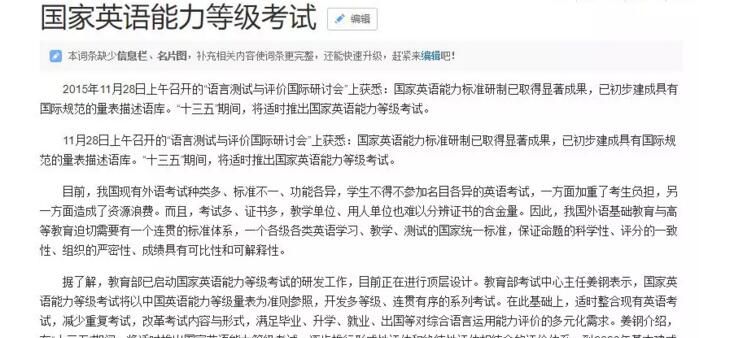教育类文章精选:Better Think Before You Apply
|
11 Better Think Before You Apply Early Decision isn't for everyone. A student's take on the admissions game. When I applied under Early Decision to the University of Pennsylvania four years ago, I was motivated by two powerful emotions: ambition and fear. The ambition was to fulfill my lifelong expectation of attending an Ivy League school; the fear was that without the advantage offered by Early Decision, I wouldn't make the cut. A Penn admissions officer told me that the previous year they had accepted 45 percent of Early Decision applicants and just 29 percent of total applicants. The implication was clear: applying under Early Decision dramatically improves your chances of acceptance. At Brown University, my other favorite, applying early did not confer any advantage. While Brown was my No. 1 choice, Penn was a close second, and I desperately wanted to make sure I got into one of the two. I applied just before the Nov. 1 deadline, and six weeks later I got my acceptance package. I was thrilled and relieved. While my friends spent winter vacation finishing as many as 18 applications each, I relaxed. On a school trip to France over spring break, I drank wine while everyone else struggled with international calling cards to phone home and find out where they'd been accepted. People cried about getting rejected, or began the difficult and agonizing process of choosing between two or more schools. Strangely, none of this made me feel better about having applied early. It made me feel worse. When a lot of people from my class got into Brown, I wondered if I, too, could have. Penn sent a discombobulating array of material to incoming freshmen over the summer. As the pile of mail mounted, so did my concerns that I had made the wrong choice. I had been to Penn only one day, in October of my senior year. I realize now I did not know nearly enough about myself or the school. Picking classes was far more arcane than I had expected (or than it would have been at a smaller school). And when I got to the campus, I found that fraternities and sororities were a more noticeable and obnoxious presence than the 30 percent student membership had suggested to me. It wasn't long before I knew Penn was not right for me and I looked into transferring. For me, it was about more than just changing schools. I wanted to have the traditional application experience I'd missed out on during my first go-round. The only school on my list that allowed transfers during the second semester of freshman year was Wesleyan, so I waited out the whole year, then applied to Yale, Brown and Wesleyan. I got into Wesleyan. The irony that I could have gotten in sooner, without getting rejected by the other schools, was not lost on me. But I know I made the right decision. To high-school seniors who want to avoid making the same mistake I did, my advice is simple: don't apply under Early Decision unless you are absolutely sure that the school is your first choice. And, just as important, don't let your parents or college-guidance counselor persuade you to apply under Early Decision. They may have their own agenda, or at least their own perception of who you are and what you want. As I discovered, no one can really know what you want better than yourself, and even you may need time to figure out what that is. By Ben Adler Newsweek; 11/18/2002, Vol. 140 Issue 21, p62, 2/3p, 1c 注(1):本文选自Newsweek, 11/18/2002, p62 注(2):本文习题命题模仿对象2002年Text 3. 1.The main reasons for the author to apply under Early Decision are _______. [A]pride and ambition [B]dream and fear [C]easiness and effort-saving [D]trouble-saving and release 2.It can be inferred from the text that the main advantage of Early Decision is that ______. [A]you can graduate from the high school earlier [B]you don’t worry about the results [C]you needn’t take the entrance examination [D]you’re more likely to be accepted 3.The description of the author’s feelings in Paragraph 2 shows that _______. [A]he is satisfied with his choice [B]there are many advantages of being accepted earlier [C]less effort is needed under Early Decision [D]he is happy with and doubts about his decision 4.We can draw a conclusion from the text that ________. [A]a full consideration is needed before applying [B]students should avoid the short cut [C]a quick decision will do you no good [D]the author shouldn’t apply under Early Decision 5.From the text we can see that the writer seems _________. [A]regretful [B]optimistic [C]gloomy [D]sensitive 答案:BDDAA 篇章剖析 本文是一篇记叙文,以作者的亲身经历讲述了“优先申请”政策带给自己的苦与乐。第一段讲述了我为什么要考虑使用“优先申请”政策;第二段指出这一政策在开始时带给我的甜头;第三段指出自己进大学后的苦恼和烦恼;第四段指出我的补救措施;第五段提出自己对其他人的忠告和建议。 词汇注释 take n. 【体育运动】门票收入,门票;(采取的)行动;企图,尝试 confer [kEn5f:(r)] vt.授予(称号、学位等), 赠与, 把...赠与, 协议 agonizing[5A^EnaIzIN] adj.苦恼的, 痛苦难忍的 discombobulate [9dIskEm`bCbjJleIt] vt.使混乱, 使泄气, 使困惑 array [E5reI] n.排列, 编队, 军队, 衣服, 大批 mount[maJnt] vi.增长 arcane [B:5keIn] adj.神秘的, 不可思议的 fraternity [frE5t:nItI] n.兄弟关系, 友爱, 互助会, 兄弟会 sorority [sE5rRrItI; (?@) -5rC:r-] n.妇女联谊会, 女学生联谊会 obnoxious [Eb5nRkFEs] adj.不愉快的, 讨厌的 lost 无影响 agenda [E5dVendE] n. pl. 议程 难句突破 1.And when I got to the campus, I found that fraternities and sororities were a more noticeable and obnoxious presence than the 30 percent student membership had suggested to me. 主体句式:…I found that… 结构分析:本句句形结构并不复杂,重点在于对that引导的宾语从句中对more…than的理解。 参考译文:进校后,我发现,大学生联谊会比比皆是,其讨嫌程度远胜过劝我参加他们组织的30%的各类学生会员。 题目分析 1.答案为B,属事实细节题。原文对应信息是“I was motivated by two powerful emotions: ambition and fear.” 2.答案为D,属推理判断题。原文对应信息是“The implication was clear: applying under Early Decision dramatically improves your chances of acceptance.”作者特别渴望能确保他上大学,所以他才放弃了他的第一选择Brown大学,而选择了宾夕法尼亚州大学。 3.答案为D,属事实细节题。第二段前半部分描述了作者释然、悠闲的状态,这和他的同学形成了鲜明的对比。而最后一句“When a lot of people from my class got into Brown, I wondered if I, too, could have.”却又道出了他的不甘和遗憾。 4.答案为A,属推理判断题。文章前几段描述了作者依据“优先推荐”政策选择宾夕法尼亚州大学的前因后果,最后一段总结了他的经验教训。他并不是他的做法不对,而是有些欠考虑。 5.答案为A,属情感态度题。通读全文,作者表现更多的是悔不当初。 参考译文 申请前要三思而后行 “优先推荐”并不适合于每个人。学生在招生游戏中应采取的对策 四年前,当我根据“优先推荐”的原则申请宾夕法尼亚州立大学的时候,有两种强烈的情感促使我这么做:雄心和恐惧。我的雄心是我要实现上名牌大学的宿愿,恐惧的是如果没有“提前决定”政策带来的有利条件,我就无法走此捷径。宾夕法尼亚州立大学负责招生工作的人告诉我,去年他们录取了45%的“提前决定”的考生,而从其他申请者中只录取了总数的29%。这就清楚地表明:“提前决定”政策能大大提高被录取的几率。布朗大学是我青睐的另一所学校,但提前申请没有给我带来任何好处。布朗大学是我的第一个选择,而宾夕法尼亚州立大学是我的第二选择,我非常希望我能保证进入其中的一所。 在11月1日这个最后期限之前,我提交了申请。六周之后,我收到了录取书。我激动万分,如释重负。当我的朋友们在寒假期间忙着提交多达18份申请书的时候,我悠然自得。在学校组织的春假法国之旅中,当我悠然喝酒的时候,其他同学却忧心忡忡,用国际电话卡打电话回家看自己是否被录取。有人因为没被录取而伤心落泪,有人开始艰难而又痛苦地从两所或更多的学校中进行选择。奇怪的是,这些丝毫没有使我因为已经提前申请好了而感到高兴,相反,我感觉很糟糕。当我班有很多同学考上了布朗大学时,我特别想知道如果我也报考的话,是否也能考上。 宾夕法尼亚州立大学给暑期过后即将入学的新生寄来了一大堆令人困惑的材料。随着邮件的增多,我的担心也随着增长。我担心我做出了错误的选择。我只在宾夕法尼亚州立大学呆过一天,那是在我毕业那年的十月份。我现在意识到我不仅对自己也对这所学校都缺乏足够的了解。选课让我着实摸不着头脑,这远远超过我的预想的情况(或超过了稍小点学校的情况)。进校后,我发现,大学生联谊会比比皆是,其讨嫌程度远胜过劝我参加他们组织的30%的各类学生会员。 没过多久我就发现宾夕法尼亚州立大学不适合我,于是我就着手转学。对我来说,这不仅仅是换学校的问题。我想弥补我在第一轮申请中错过的传统的申请经历。供我选择的允许在第一年第二学期转学的唯一一所学校是卫斯理教派大学。我等了整整一年,接着又申请了耶鲁大学、布朗大学和卫斯理教派大学。我能很快被卫斯理教派大学录取。我本来早就可以在未遭到其它学校拒绝的情况下被该校录取的,但这种极具讽刺意味的事这回在我身上又应验了。 对于那些想避免犯跟我一样错误的高中毕业班的学生来说,我的建议很简单:除非你百分之百确定那所学校就是你的第一选择,否则不要按“优先推荐”的政策进行申请。同等重要的是,不要让你的父母或者大学指导顾问说服你去按“提前决定”的政策进行申请。他们可能有他们自己的一定之规,或者他们至少对你是什么样的人、你想要什么有自己的见解。如我所见,没人能比你自己更能真正了解你想要什么,甚至有时我们也需要时间来思考一下自己想要什么。 |








